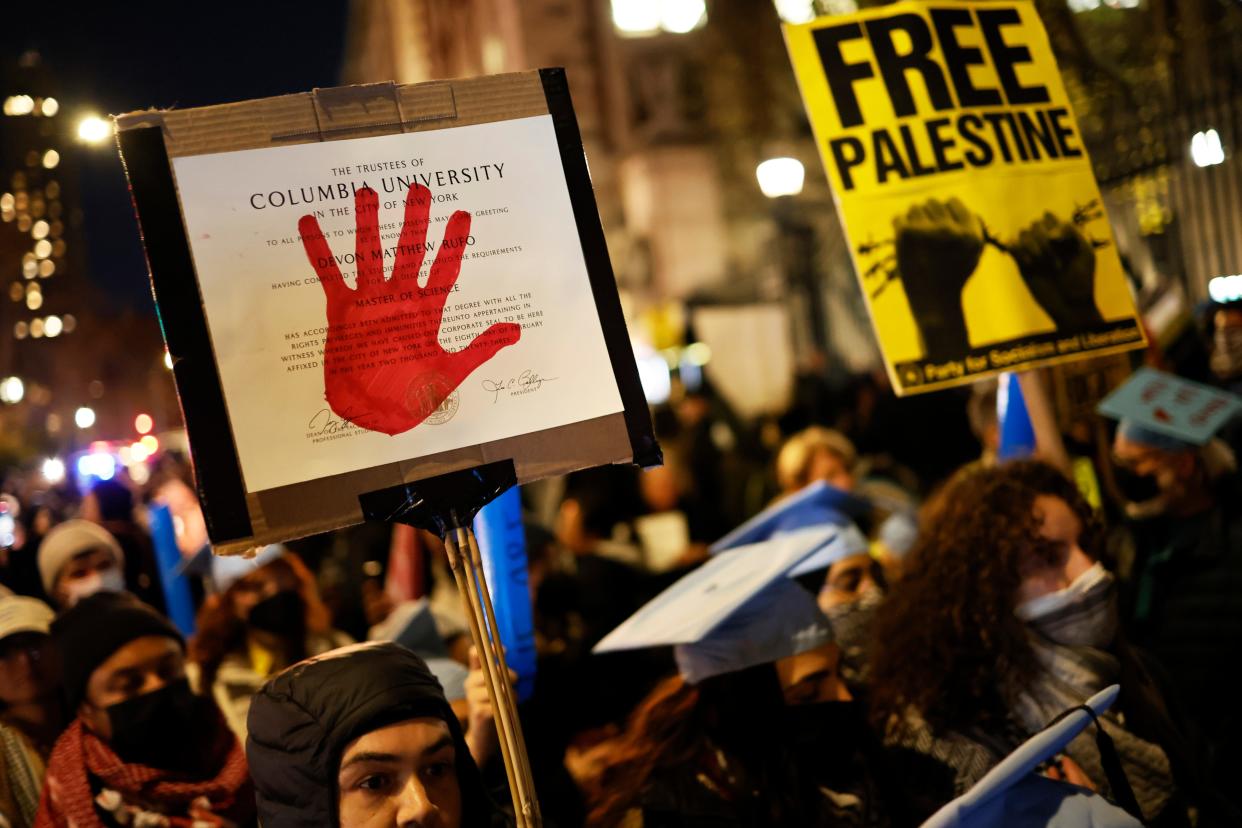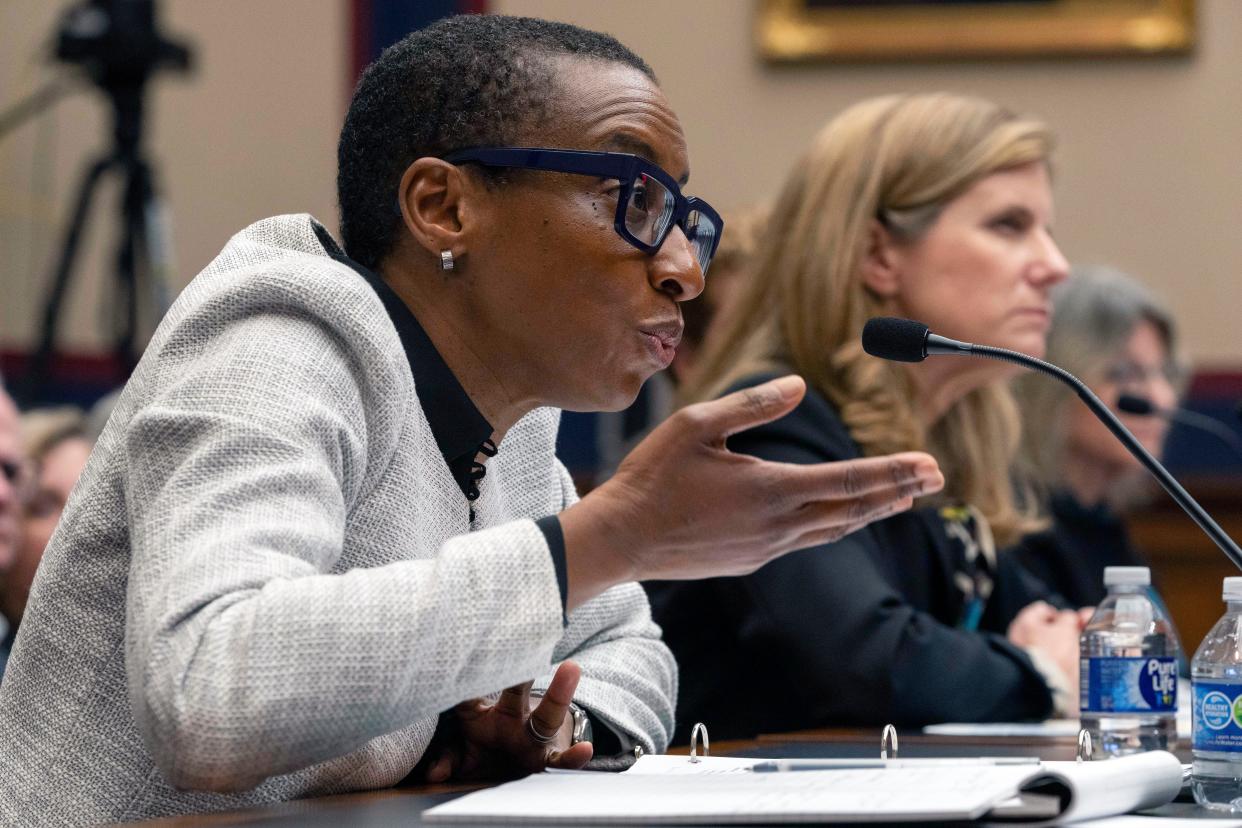Speech police? Supreme Court asked to enter fray on confronting bias on campus.
WASHINGTON – One student reported a swastika scrawled across a whiteboard. Another, the only Black male in his class, said he was asked if he would be willing to stand up in front of his peers and rap.
“I brushed it off,” the unidentified student told school officials at Virginia Tech.
But, he added, “this is not the only instance of … behavior like this.”
The complaints funneled into a group of school officials Virginia Tech brought together in 2018 to review and confront bias on campus – sexist jokes, say, or racist name-calling. Known as “bias-response teams,” the groups have proliferated at universities across the nation as schools wrestle with a series of high-profile hate incidents.
O'Connor: 'Audience of one.' A look at some of Sandra Day O'Connor's biggest Supreme Court decisions
Now those efforts are facing First Amendment challenges, including a contentious case pending against Virginia Tech at the U.S. Supreme Court. The lawsuits have been successful in forcing schools to rewrite what critics call “speech police” policies. Conservatives say these policies intimidate students from speaking their mind.
“Though the First Amendment contains no exception for ‘hateful,’ ‘harassing,’ or ‘biased’ speech, universities often try to suppress it,” a group called Speech First told the Supreme Court in its suit against Virginia Tech. “If Speech First is right, then bias-response teams are chilling the speech of millions of college students nationwide.”
The legal fight has reached the top court at a moment when the debate over speech on campus has become particularly fraught. School administrators are navigating a push for inclusivity in student bodies that − like the rest of the nation – are often sharply divided over politics, cultural issues and foreign affairs.

The perils were on display last week as the presidents of three elite universities – Harvard, the University of Pennsylvania and the Massachusetts Institute of Technology – faced piercing backlash for refusing to say whether students would violate school policies if they called for the genocide of Jews. The three presidents almost immediately walked back those comments after a maelstrom of criticism and calls for them to step down, and on Saturday night, the University of Pennsylvania President Liz Magill resign from her job.
But even before that, there were fierce disputes on campuses about the Hamas-Israel conflict, the Trump presidency and issues like race, gender identity, criminal justice and what it means to be "woke."
Neither Speech First nor its lawyer responded to interview requests.
'We're going to have to confront that tension'
Virginia Tech told the Supreme Court it already disbanded its bias-response team earlier this year, even though it won the initial stages of its case in lower courts. The Supreme Court, the university said, should dismiss the Speech First appeal since the central controversy the group is raising no longer exists.
Mark Owczarski, a Virginia Tech spokesman, said the school would not comment on the case given that it is pending before the Supreme Court. But, Owczarski said, the lower courts’ “two previous decisions speak for themselves.”
The justices were scheduled to discuss the case, Speech First v. Sands, on Friday. They will likely decide in coming weeks whether to hear the appeal and resolve divisions among appeals courts about whether the suits may continue.
Bias-response teams “can generally be understood as part of a growing and evolving trend of colleges and universities making their commitment to deliver equity and inclusion more visible and more robust,” said Stacy Hawkins, a law professor at Rutgers University who specializes in employment law and diversity.
But it’s also possible, Hawkins said, that some of those efforts went too far. There is widespread dissatisfaction on campuses – among students, faculty and administrators – about a lack of clarity over what’s permitted, she said.

“Everyone’s trying to figure out how to navigate this climate, this context that we’re all existing in right now because it’s so extraordinarily delicate,” she said. “We’re going to have to confront that tension.”
Conservative speech chilled?
Speech First has had success with similar lawsuits across the country. The University of Michigan ultimately settled in 2019, ending a similar response team it had created, after a federal appeals court ruled for the group. The University of Texas at Austin disbanded its group as part of a settlement in 2020 after a Speech First lawsuit.
Speech First claims the bias efforts violate the First Amendment by making students with unpopular views reluctant to express those opinions for fear of being turned over to school officials for discipline. Those views, the group told the Supreme Court, included one student who believes that immigrants who cross the border illegally should be referred to as “illegal aliens,” and another who believes the Black Lives Matter movement is “fundamentally racist.”
The bias-response team at Virginia Tech, which one administrator described as "air traffic control" for bias-related claims, met weekly to consider complaints, which were submitted through online forms. The group, made up of school officials, would review complaints and refer them to the dean of students or other offices if they thought further action was required. The team itself had no power to discipline students.
The complaints were rarely referred to other offices, school officials said, or even followed up on.
In an earlier stage of the lawsuit, the university described the effort as promoting “mutual respect, the value of human diversity, and the right of every person to express thoughts and opinions freely."
A U.S. District Court ruled against Speech First and the U.S. Court of Appeals for the 4th Circuit affirmed that decision. As Speech First was preparing to appeal to the Supreme Court, Virginia Tech disbanded its bias-response team and the university's president, Timothy Sands, signed an affidavit pledging that the university would not reinstitute the policy.
Sands suggested the team created unnecessary bureaucracy and noted few complaints resulted in action anyway.
"The court has a declaration from the president of a major public university which convincingly explains why and how the bias protocol was discontinued," the school told the Supreme Court. "In that declaration, he swears before this court that he shall not allow anything like it."
This article originally appeared on USA TODAY: Supreme Court asked to enter the heated debate over campus speech
